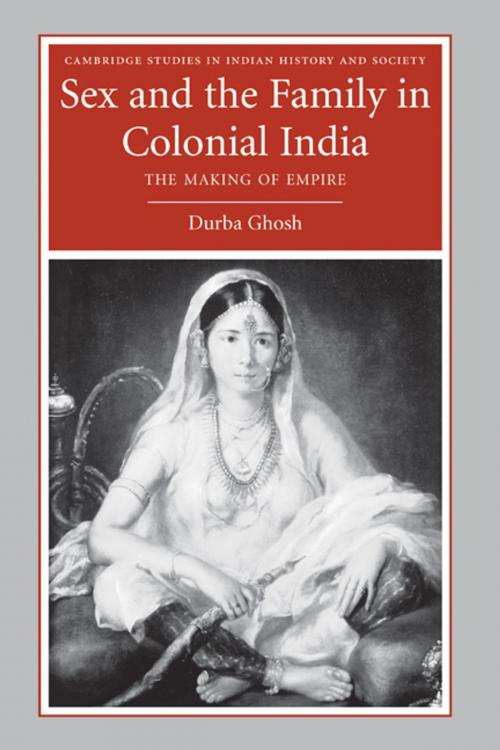Sex and the Family in Colonial India
The Making of Empire
Nonfiction, History, Asian, India, Reference & Language, Reference| Author: | Durba Ghosh | ISBN: | 9781316171998 |
| Publisher: | Cambridge University Press | Publication: | November 2, 2006 |
| Imprint: | Cambridge University Press | Language: | English |
| Author: | Durba Ghosh |
| ISBN: | 9781316171998 |
| Publisher: | Cambridge University Press |
| Publication: | November 2, 2006 |
| Imprint: | Cambridge University Press |
| Language: | English |
In the early years of the British empire, cohabitation between Indian women and British men was commonplace and to some degree tolerated. However, as Durba Ghosh argues in a challenge to the existing historiography, anxieties about social status, appropriate sexuality, and the question of who could be counted as 'British' or 'Indian' were constant concerns of the colonial government even at this time. By following the stories of a number of mixed-race families, at all levels of the social scale, from high-ranking officials and noblewomen to rank-and-file soldiers and camp followers, and also the activities of indigenous female concubines, mistresses and wives, the author offers a fascinating account of how gender, class and race affected the cultural, social and even political mores of the period. The book makes an original and signal contribution to scholarship on colonialism, gender and sexuality.
In the early years of the British empire, cohabitation between Indian women and British men was commonplace and to some degree tolerated. However, as Durba Ghosh argues in a challenge to the existing historiography, anxieties about social status, appropriate sexuality, and the question of who could be counted as 'British' or 'Indian' were constant concerns of the colonial government even at this time. By following the stories of a number of mixed-race families, at all levels of the social scale, from high-ranking officials and noblewomen to rank-and-file soldiers and camp followers, and also the activities of indigenous female concubines, mistresses and wives, the author offers a fascinating account of how gender, class and race affected the cultural, social and even political mores of the period. The book makes an original and signal contribution to scholarship on colonialism, gender and sexuality.















